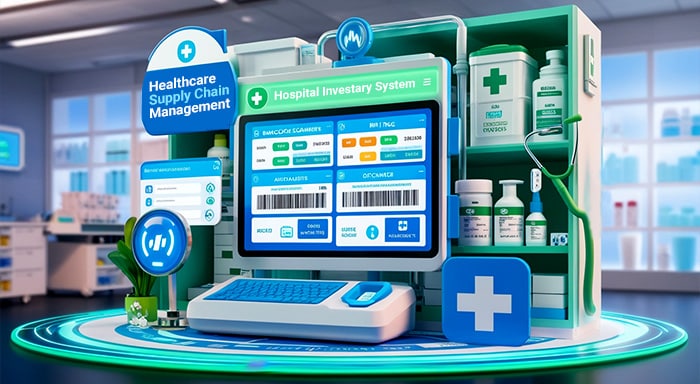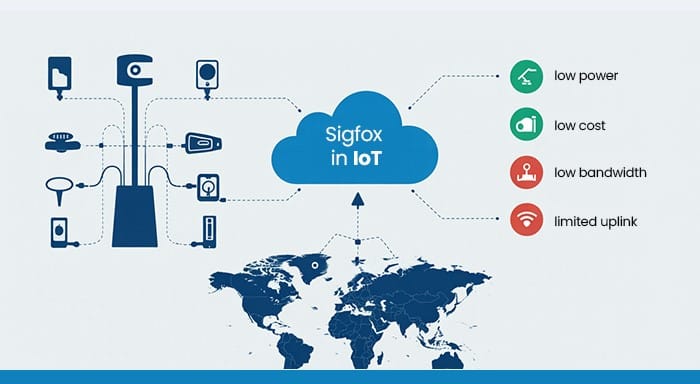Technology plays a monumental role in changing industries, and healthcare is no exception. One area in which technology is causing a significant impact is health supply chain management. It refers to the processes involved in ensuring that the right amount of medical supplies, drugs, and equipment reach the destination at the right time.
The demand for healthcare services continues to rise along with the need for efficient and streamlined supply chain service. In this blog, we will elaborate on how technology improves healthcare supply chain management and why it is essential for better care.
Automation and Digitalization
One major improvement related to healthcare supply chain management is the automation of processes. Preceding times had practices mostly about manually handling several essential tasks concerning managing supplies. Orders are documented, shipment tracking is done over the phone, and paperwork. Most of this work can be fully automated using technology. Various hospitals and clinics use software applications that can automatically place orders, track inventory, and manage delivery.
Digitalization has also made it easier to store and retrieve information. Now, data related to suppliers, shipments, and levels of stock are digitally stored and retrieved instantly. Not only does this help save time, but it also reduces opportunities for errors due to human handling of information.
Improvements in Inventory Management
The management of inventory in a healthcare institution requires much maneuvering. Medical supplies and drugs must be readily available but simultaneously kept under control so that wastage is limited. Technology will improve management by providing real-time stock levels. Thus, automated systems enable healthcare providers to keep better tabs on their inventory.
For instance, a hospital can use barcode scanners and RFID tags to immediately see what's in stock, running low, and what needs ordering. In this regard, hospitals can always be sure that essentials are available at all times, thereby eliminating the chances of running out of something really important.
Cost and Waste Reduction
Waste in the healthcare sector is costly. For example, drugs may have gone to waste due to the fact that they are close to their expiry dates and will not have been used while some supplies may have been ordered in excess; technological advancement may assist healthcare organizations in reducing wastages and therefore controlling costs by optimizing their supply chain processes.
Using data analytics, hospitals can know the demand more accurately so that supplies ordered are based on actual usage patterns instead of just guessing. It can save money and also avoid wastes. Also, expiration dates of medications can be noted automatically and items approaching their expiration dates alerted to the staff.
Visibility in Supply Chain
Another big challenge in healthcare supply chain management is an undue lack of transparency into where supplies are at any given time. Actually, it will not be possible to be sure if a shipment delays or gets lost without proper tracking. However, technology helps improve this kind of visibility by allowing the real-time tracking of shipments for healthcare organizations.
By using GPS tracking and IoT devices, health providers can follow the location and condition of their supplies. This is mostly for items, for example, vaccines that need to be kept within a specific temperature range. Thus, by being more visible, healthcare organizations ensure that their supplies reach on time and properly.
Compliance and Security
The health industry is very regulated. Supply chain management does not feature exceptions in this case. Hospitals, clinics, as well as SFDA authorized representatives are expected to have strict regulations on how the medications, medical devices, and patient information are being managed and handled. Technology may help ensure compliance through the automation of documentation and tracking requirements. In particular, adherence to standards such as CE IVD certification is critical for managing in vitro diagnostic devices within the supply chain in the European market.
Moreover, data safety is also an issue because health organizations deal with such private information about patients and suppliers, which they must protect against unauthorized access. The technology, through secure systems and encryption, can maintain this information but create access for users who must have access to the information.
Faster Response to Emergencies
The COVID-19 pandemic places extreme demands on having a responsive and agile healthcare supply chain. Healthcare providers should respond nimbly in an emergency, like a pandemic or natural disaster, to changes in demand for supplies. Technologies lend vitality to the agility of the supply chain, thus being able to respond rapidly to the urgency of the problem.
For example, predictive analytics could provide an indication of trend-based demand spikes. Similarly, the company's automated ordering system can speed up the whole procurement process, allowing healthcare organizations to restock critical supplies more quickly, so patients' needs will be responded to in due time.
To Summarize
Healthcare will soon revolutionize its supply chain management with the application of technology so that there is automation, improved visibility, reduced waste, and enhanced communication. All these will help in guaranteeing that quality patient care can be delivered to the patients through providers. Hospitals and clinics will manage their resources more efficiently, reduce costs, and be prompt in responding to emergencies.
The growth of the healthcare industry will only deepen the need for effective supply chain management. Keeping pace is not enough anymore; embracing this technology is an attempt to improve patient outcomes and ensure that the right resources are available for the healthcare providers who might just make the difference between life and death.








